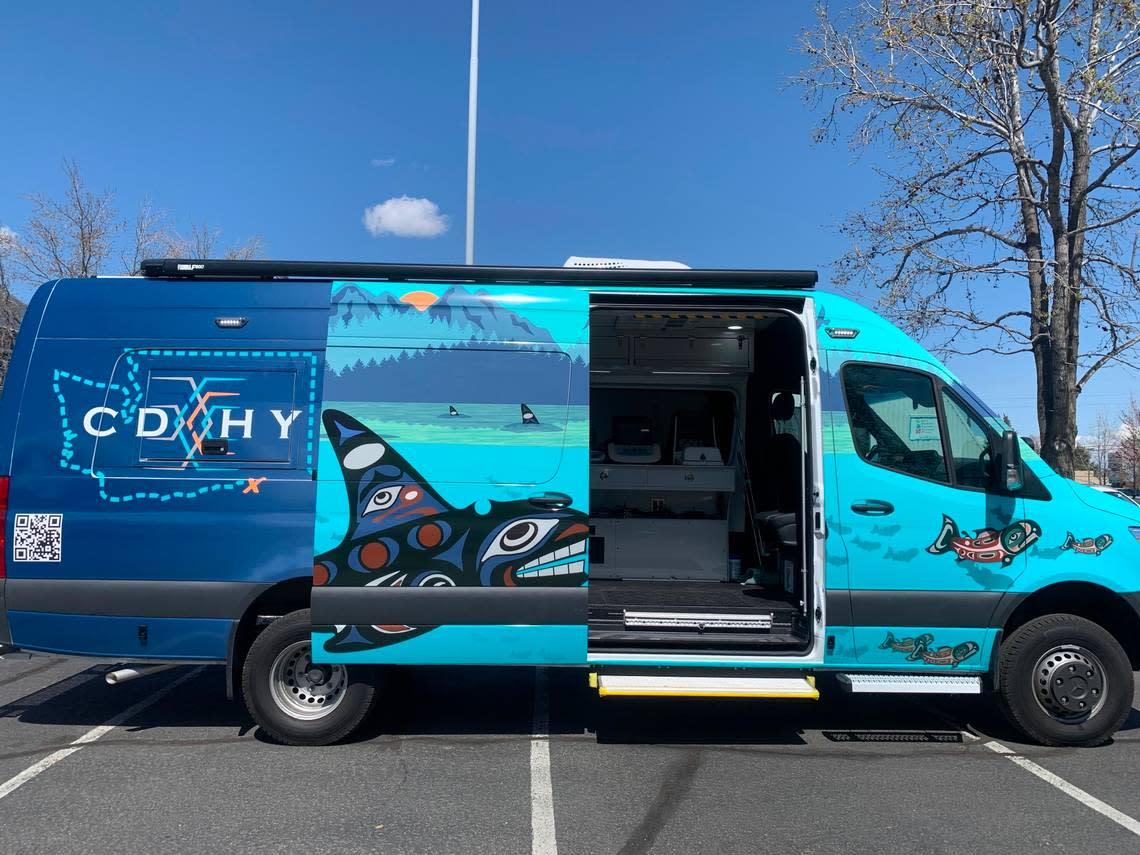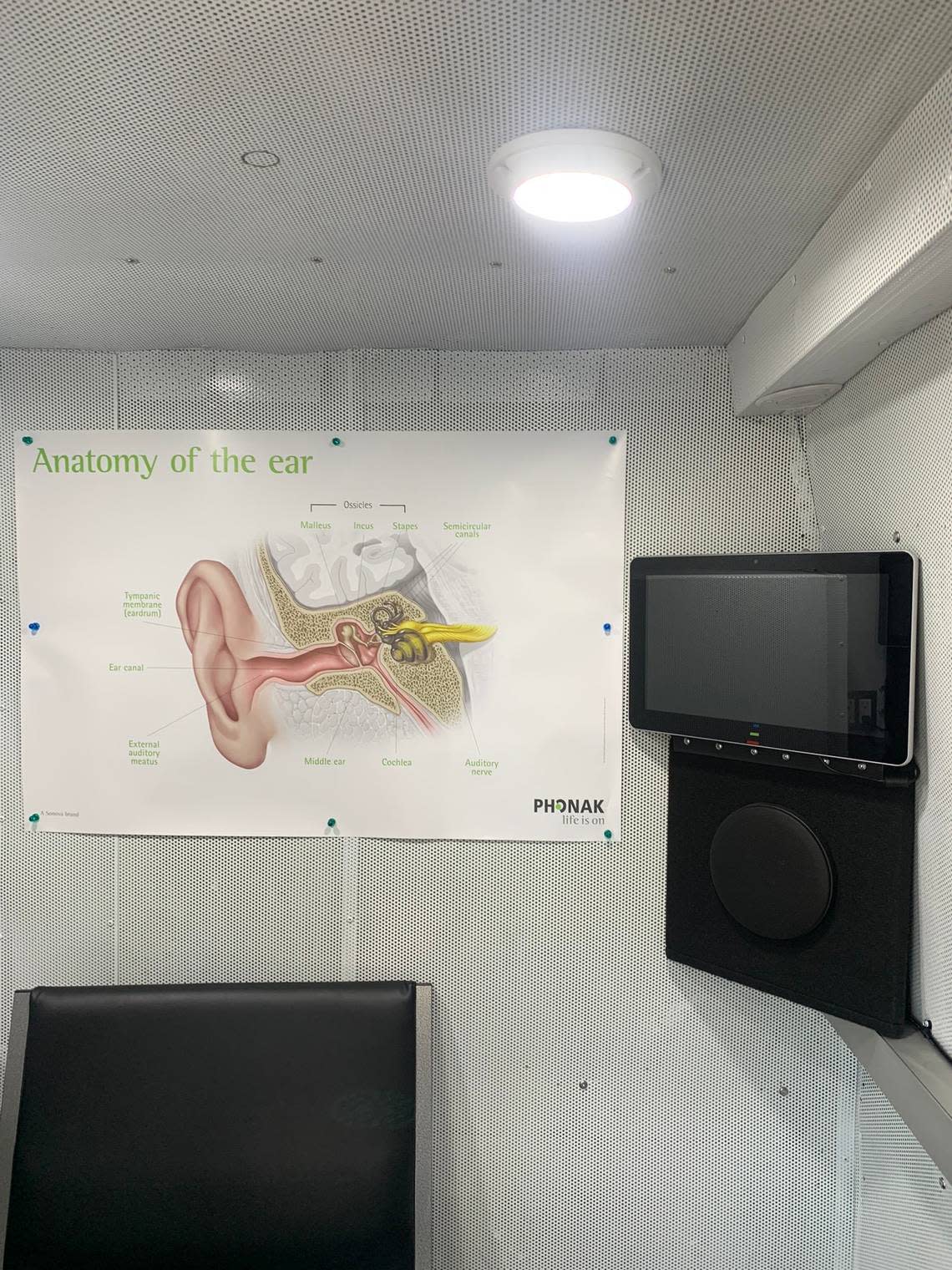New mobile lab stationed in Tri-Cities will bring hearing tests, resources to Eastern WA
Early intervention is key when it comes to children with hearing loss. On the eastern side of Washington state, there is a relatively larger number of kids with hearing loss, yet a disproportionately smaller number of pediatric audiologists, according to experts, locals and state records.
Even fewer pediatric audiologists accept Medicare, which leaves rural and low-income areas with few resources or options.
Over half of the western Washington locations listed by the Department of Health include financial assistance options. Central and eastern Washington are grouped together, with half as many locations. None of these locations show an option for financial assistance.
Is a mobile audiology lab the answer?
In response to these shortfalls, the Washington State School for the Deaf and Hard of Hearing (WSD) has spent the last decade working on a program to fill these gaps — with mobile audiology labs. The mobile clinics are equipped with testing equipment for comprehensive hearing assessments.
The first lab was implemented through the Educational Service District 123 (ESD 123) Audiology Department.
People can also contact the audiology department for information on scheduled visits at 509-410-3432. The lab is also available by request Monday through Wednesday for school and community site visits.
The cost varies according to student circumstances. Reach out to your student’s teacher and district for more information about your child’s options.
“By traveling to children and families in need of services, we help alleviate distance, time and financial burdens that create barriers to timely care,” said Kalani Cox, WSD’s director of audiology, in an email to McClatchy. “We aim to help improve timely intervention so that every child, regardless of where they live in WA can have equitable opportunities and access to language and learning.”

Mobile audiology lab services
The mobile audiology lab will be at the ESD 123 main campus at 3924 Court St. in Pasco most Thursdays. One Thursday a month will be spent traveling to some of the 23 eastern Washington school districts included in the program, in Tri-Cities and beyond.
The clinic offers hearing evaluations for anyone between ages seven months and 21 years, according to Betsy Schluge, ESD 123’s director of audiological services. Depending on a student’s results in regular hearing check-ups, they may be referred to the lab for these more thorough results.
Different testing methods are used for different ages. Audiometry tests are done in a soundproof room on the van.
Age 0-3: Visual reinforcement audiometry uses visual responses to determine a child’s hearing sensitivity. The room has televisions with speakers on either side of the child, and one they face head-on. Sounds are played on one side, and if the child looks at the corresponding screen, cute, happy images are displayed.
Age 3-5: Conditioned play audiometry uses toys and games to show a conditioned response. Sounds are played, then an action involving the toy will follow. If they have building blocks, they might stack another block each time they hear a sound.
Age 5+: Conventional audiometry testing is the standard hearing test, where sounds are played and the child raises their hand when they hear something.

Kids can also be fitted for hearing aids, take part in other testing and get connected to further resources with their families through the mobile lab.
The inside of the van was entirely designed and engineered for children with hearing loss. The materials used offer the best experience for these kids, regardless of the service they are visiting for. There are seats inside for parents to wait and watch as well.
Using Pasco’s audiology lab
The goal of the mobile lab is to offer access and resources to all youth, regardless of whatever barriers stand in their way. If personal insurance won’t cover services, a child’s school district or special education department may be able to cover their way. The van also accepts Medicaid and state insurance.
What to know
Appointments are required.
Payment may not be necessary depending on the child’s circumstances. Check with your child’s school to see what course of action is possible for your student.
Follow the flowchart before going to the mobile lab. If you think you know a child who should visit the audiology lab, check these preferred care paths to see what your next step should be.
